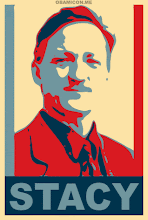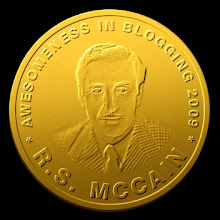It occurs to me that Scandinavia, with its homogeneous population, may have been spending down the accumulated social capital of its pre-welfare state society. . . .Exactly so. First, the point about how homogeneity allows the welfare state to appear to work. A monoethnic society can foster the "we're-all-in-this-together" attitude, and it is less easy to notice how the welfare system divides the population into taxpayers and tax-consumers. Institute a welfare state in a homogeneous polity, and the layabouts and cheats appear to be random occurrences, so they can be shrugged off as anomalous.
I think we generally underestimate how much culture matters to economic success. It isn't even a matter of getting the rules just right; it's a matter of cultivating a hidden law, a sort of cultural operating system, that limits abuse of public and private trust.
Institute a welfare state in a multiethnic polity, on the other hand, and inevitably some groups will utilize the system more than others. People will notice this pattern, and a sort of "us and them" suspicion develops. And if, as conservatives believe, dependence on welfare is destructive of character, this destruction will be more noticeable to society at large if it is mostly isolated within certain ethnic communities.
Liberals don't seem to see the danger in this. "Well, it works in Denmark!" they'll say, when you try to point out the flaws of social democracy. And they seem not to grasp the deeper meaning of the response: "This ain't freakin' Denmark!"
The second point McArdle makes that I like is about "accumulated social capital" and the cultural influence on economics. The immediate benefits of instituting a program like Social Security are apparent: Old folks are no longer dependent on their children or on charity, et cetera. And for a generation or so, while the pre-existing cultural attitudes about hard work and thrift endure, all you see are the benefits. But then, as the program steadily erodes the pre-existing culture, the unintended consequences become apparent.
Take, for example, proposals for universal health care. We are told that the annual cost will be X-billion dollars. But that estimate is based on current rates of utilization of health care. What will the utilization become when health care is "free"? What will happen when people develop an entitlement mentality about health care? What about the scams, the malingering, the cheaters gaming the system for their own benefit?
Eventually, the welfare state creates its own cultural attitudes. And these attitudes are starkly opposed to those values -- diligence, thrift, sobriety, honesty, forebearance -- necessary to economic growth and civil society.













No comments:
Post a Comment